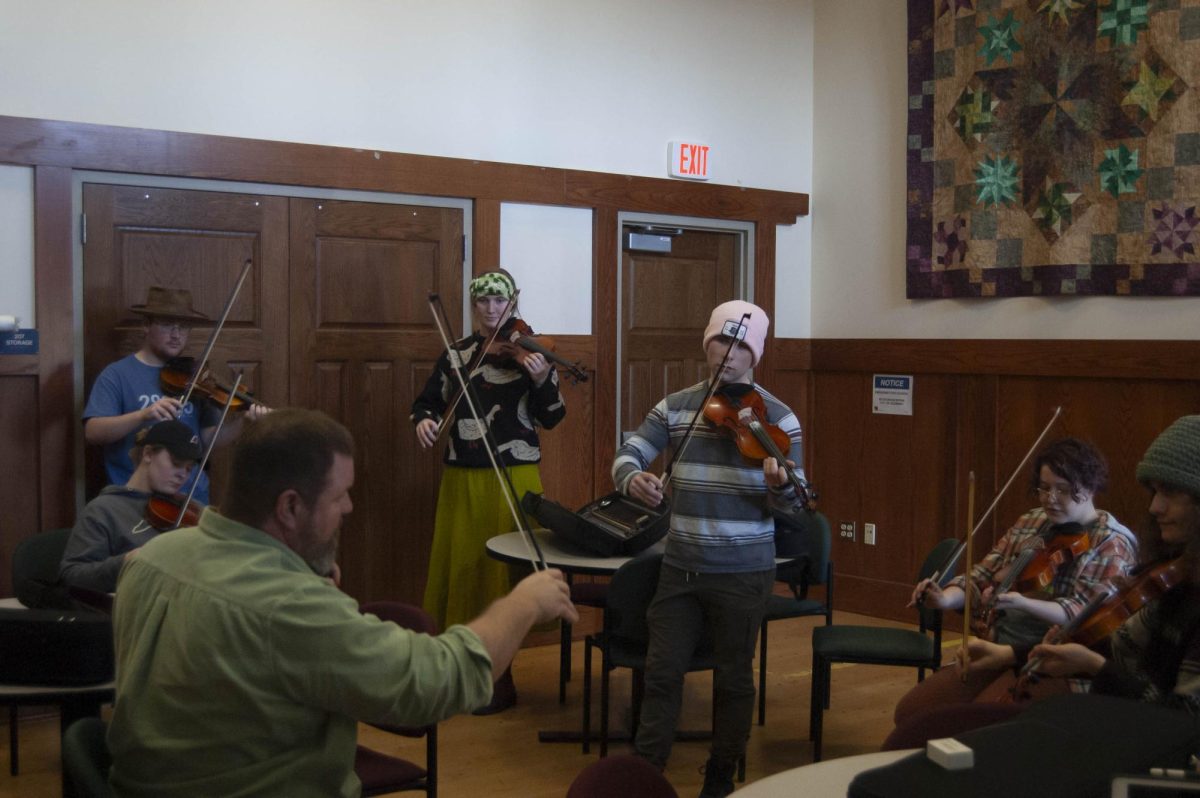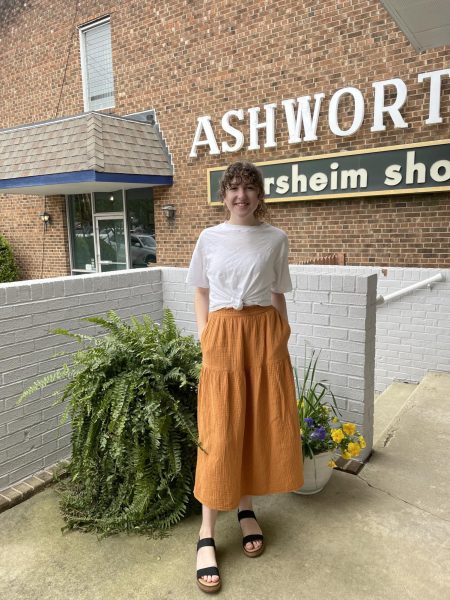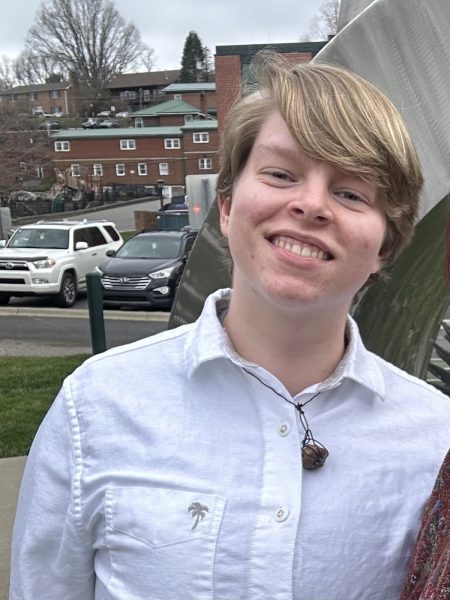Alexander Hooker’s journey to old-time folk music started gradually, then suddenly. He has been a professor of Appalachian Strings here at App State for 25 years. Looking back, he reflects on where his path to teaching music began and what he hopes to accomplish.
His love of music began in Lexington. Here, he was surrounded by artists and instruments — the perfect combination for a blossoming musician.
“I was always around music; my parents took music seriously. They didn’t just listen to it, they played it and sang it,” Hooker said.
Hooker’s father was the owner of a music store, which gave him access to various instruments and albums as a child. His upbringing, combined with his parents’ passion, helped him cultivate his creativity and pushed him down the path of teaching music and fostering a community for old-time.
Growing up, Hooker had a penchant for the music of his decade, ‘90s punk and rock ‘n’ roll. In middle school, he and a few friends started a punk band called the Black Plague. They met up and practiced in his grandmother’s basement.
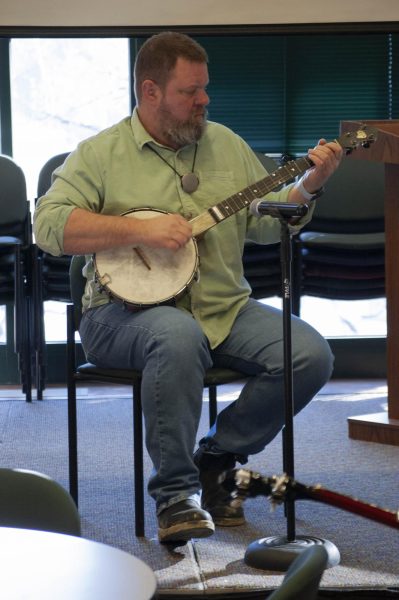
“We were a hardcore bunch of 12 year olds,” Hooker said.
Hooker and some of his middle school bandmates stayed close for years, learning to play alternative, post-punk and rock ‘n’ roll together. They never gigged, but they would always try to play when they were with each other, and they would set aside time to record their music.
During this time, Hooker learned how to play a variety of instruments. He started off as the bassist of the Black Plague, and by the time he was 16 years old, he was playing bass, guitar and drums.
Hooker kept up with practice all the way through college. He came to App State as an undergraduate and graduated with an anthropology degree in 1992.
After graduating, he went to Chapel Hill and started playing a more acoustic sound. While in Chapel Hill, Hooker and his friends went out to a pivotal dinner with some friends of a friend who loved playing bluegrass.
These friends invited Hooker and his friends over to play music, and they ended up jamming together until 7 a.m. The very next day, Hooker went out and bought a mandolin and started practicing every day for two to five hours.
Wanting to learn more than he could on his own, he went to the Swannanoa Gathering, a week-long workshop at Warren Wilson College, and learned how to play the banjo in the style of old-time.
Three years later, he returned to App State to earn a master’s degree in Appalachian Studies in 1996. As a graduate student and while teaching an Introduction to Appalachian Studies course, Hooker pitched the idea of a strings class to the department head, Pat Beaver. She approved it, and he has been teaching it ever since.
“I wanted to create a music scene for old-time music and introduce it to students,” Hooker said.
Hooker’s class involves learning how to play old-time on the fiddle or the banjo, as well as learning about the history of the music in Appalachia.
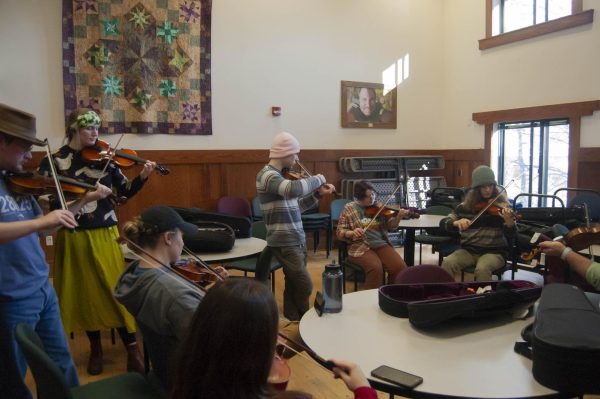
“It keeps me grounded. I really like being around students,” Hooker said on his time as a professor. “It’s fun showing them new stuff and introducing them to things they wouldn’t have known otherwise.”
In the year 2000, Julie Shepherd-Powell, an assistant professor of Appalachian Studies and the graduate program director in Appalachian Studies, took his class and said it completely changed her life.
Shepherd-Powell was one of Hooker’s first students. She was interested in the course because she had family in Appalachia, and she had grown up coming to the mountains.
“When I took Alex’s class, I describe it as hearing the sound of home for the first time when he was playing music,” Shepherd-Powell said.
Shepherd-Powell learned the banjo and how to dance and could not get enough. She credits Hooker’s class for igniting her passion for old-time music and Appalachian history.
“I think that he does a really good job getting students excited about the music, and the ones that end up hooked like I was, and am, end up having that be a huge part of their lives,” Shepherd-Powell said.
Shepherd-Powell has gone on to teach thousands of students since learning to play from Hooker.
Another former student of Hooker’s was Steve Kruger, a 2004 App State graduate. Kruger, who runs a community garden program in Blacksburg, Virginia, also works for a non-profit organization that helps with food insecurity.
“That class changed my entire life. I got deep into old-time music through the class,” Kruger said. “Me and a bunch of other people that started taking it at the same time started playing music together, started a band and started going to fiddlers conventions together.”
Kruger shared that old-time music is still a huge part of his life, and he is teaching his kids how to play. He said Hooker is really good at getting students introduced to old-time as a world.
The Appalachian Strings class has been going strong for 24 years now, continuously impacting students.
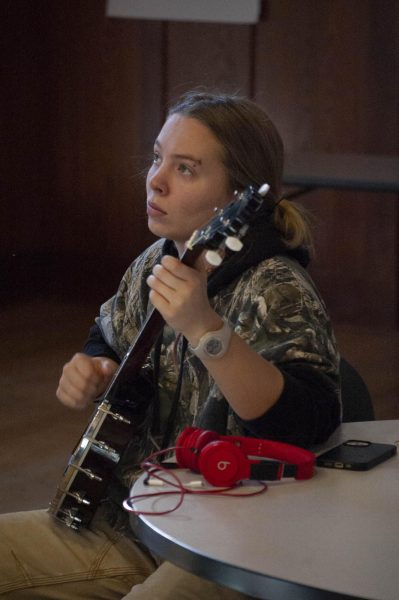
Lily Lipford and Carson Hopkins, both senior sustainable development majors concentrating in agroecology, are taking Hooker’s class this semester. Lipford is from Boone, and Hopkins is from outside of Blacksburg, Virginia, and taking this class was a way they could connect with where they grew up.
Lipford shared that she had grown up in Appalachia but did not come from a musical family. She said this class helped her connect with her roots in a way she might not have known otherwise.
“I definitely felt in tune with where I’m from more,” Lipford said. “It’s cool to explore all aspects and facets of this place and get in touch with something that’s really rich in our culture and history.”
Hopkins reflected on what she thought made Hooker a good professor.
“I think similarly to the characteristic of old-time music, which is very participatory, he’s very encouraging of any skill set showing off what they can do and definitely facilitates a really fun learning environment,” Hopkins said.
Hooker’s class is structured so that beginners and more experienced students can all learn. He said he encourages students who come in with knowledge of one of the instruments, banjo or fiddle, to play the one they have no knowledge of to keep the playing field level.
Hooker’s class usually splits the fiddle players and the banjo players up in the beginning, and he goes back and forth to each group to help teach and facilitate. The goal is to get each group ready to play all together in the end, so the last portion of the class is dedicated to all of them coming back and playing what they have been practicing.
Hopkins shared that Hooker does not just teach them how to play — he teaches them to have fun while playing it.
“He breaks down formalities that usually exist in the classroom that make it so that you can’t laugh with your professor like you do with him,” Hopkins said. “He does a really good job of restructuring what it means to learn from someone.”
Both Lipford and Hopkins said they wanted to continue playing old time after finishing the class.

